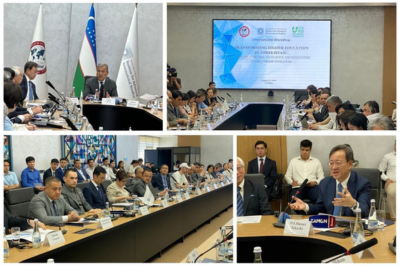A recent publication with contribution of the UzFarmBarometer project researchers highlights critical insights into the resilience of farmers in Kazakhstan and Uzbekistan. Amid significant economic shocks, including the COVID-19 pandemic and rising input prices, the study reveals that agricultural training and enhanced decision-making autonomy are pivotal in maintaining farm technical efficiency. This resilience is crucial for the sustainable development of agrifood systems in Central Asia's volatile environment.
Using unique panel datasets from 2018 to 2021, researchers found that farms which received extensive training and greater production-related autonomy were better equipped to handle price surges in key inputs like oil, diesel, and chemical fertilizers. These findings underscore the importance of providing public goods such as training and creating an enabling environment that empowers farmers. Notably, the ability to maintain high technical efficiency while reducing the use of environmentally harmful inputs also points to a move towards more sustainable farming practices.
These results have significant policy implications. For governments in Kazakhstan and Uzbekistan, investing in agricultural training and granting farmers more autonomy can enhance the resilience of agrifood systems. Such measures are aligned with Uzbekistan's Agrifood Development Strategy 2020-2030, aiming to diversify agriculture and improve land tenure security. Continuous data collection and tailored policy strategies will be essential in supporting these initiatives, providing a roadmap for other regions facing similar socioeconomic challenges.
The paper can be accessed here:
Takeshima, H., Djanibekov, N., Abduvallieva, B., Mirkasimov, B., Akramov, K. (2024): Resilience in technical efficiency and enabling factors: Insights from panel farm enterprise surveys in Kazakhstan and Uzbekistan. Applied Economics, https://doi.org/10.1080/00036846.2024.2405203





